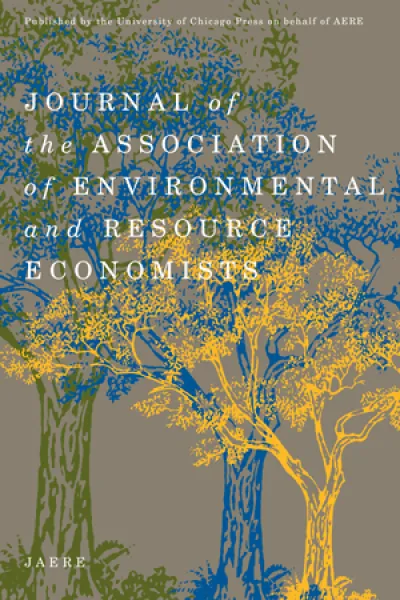Counterfactual Modeling of Multispecies Fisheries Outcomes under Market-Based Regulation
Authors
Birkenbach, AM; Lee, MY; Smith, MDAbstract
Much of the recent work evaluating economic impacts of rights-based management (“catch shares”) in fisheries relies on treatment effects models, which typically identify net effects of the policy change but not underlying causal mechanisms. We develop a structural discrete choice model of individual vessel behavior to elucidate how catch shares—and the policies that they replace—influence species targets, timing of fishing activity, and the value generated from the resource. We estimate our model using trip-level data on 286 New England groundfish vessels before and after catch-share implementation. Controlling for weather, costs, and prices, we recover structural parameters characterizing microlevel targeting decisions and simulate the effects of removing input controls and replacing them with catch shares. We find that, under catch shares, the fleet experienced longer and more even fishing seasons, somewhat higher groundfish revenues, fewer closures, and a more balanced portfolio of target stocks than in the counterfactual.
Citation
Birkenbach, A. M., M. Y. Lee, and M. D. Smith. “Counterfactual Modeling of Multispecies Fisheries Outcomes under Market-Based Regulation.” Journal of the Association of Environmental and Resource Economists 11, no. 3 (May 1, 2024): 755–96. https://doi.org/10.1086/727356.

